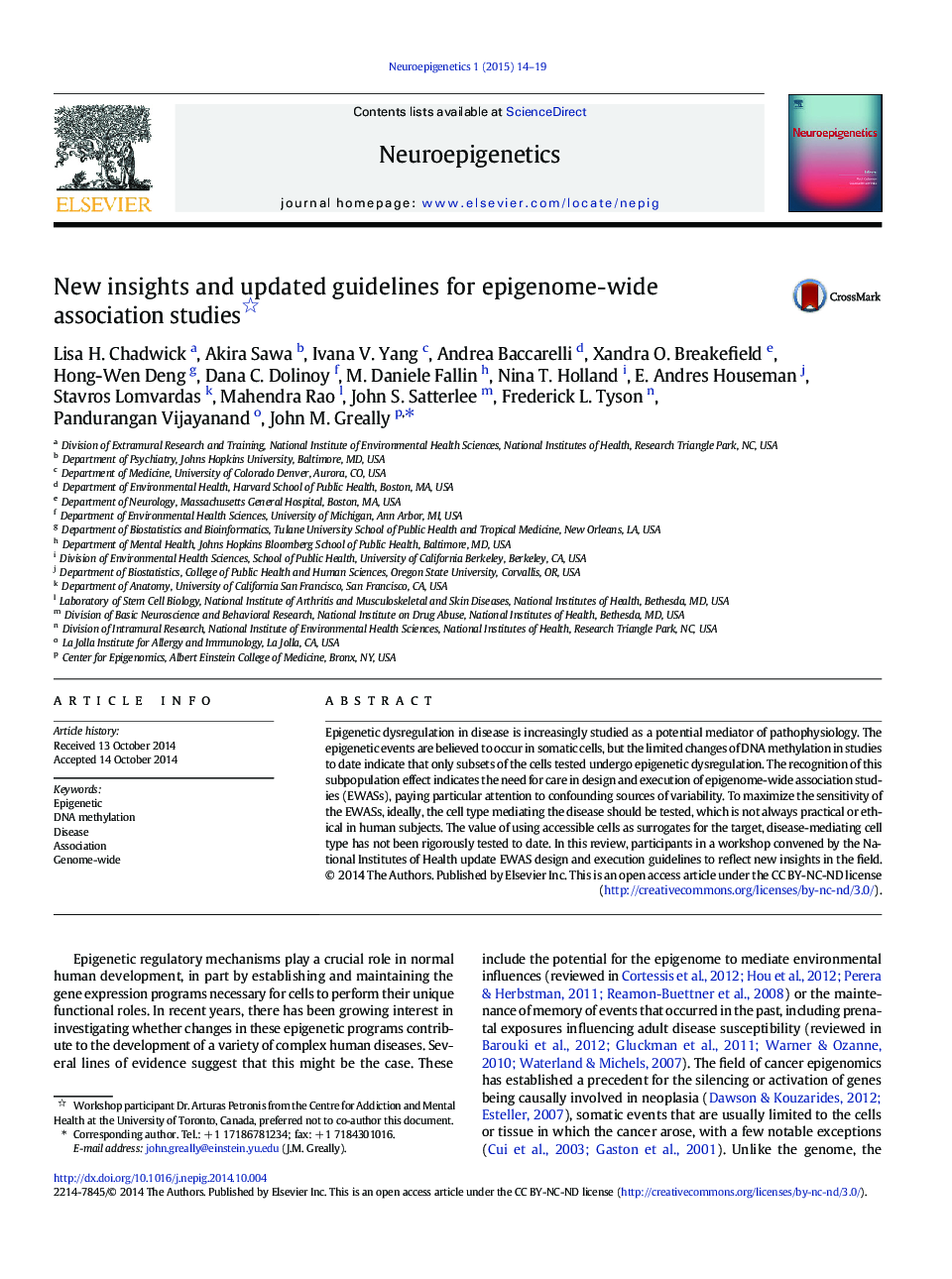| Article ID | Journal | Published Year | Pages | File Type |
|---|---|---|---|---|
| 2823960 | Neuroepigenetics | 2015 | 6 Pages |
Epigenetic dysregulation in disease is increasingly studied as a potential mediator of pathophysiology. The epigenetic events are believed to occur in somatic cells, but the limited changes of DNA methylation in studies to date indicate that only subsets of the cells tested undergo epigenetic dysregulation. The recognition of this subpopulation effect indicates the need for care in design and execution of epigenome-wide association studies (EWASs), paying particular attention to confounding sources of variability. To maximize the sensitivity of the EWASs, ideally, the cell type mediating the disease should be tested, which is not always practical or ethical in human subjects. The value of using accessible cells as surrogates for the target, disease-mediating cell type has not been rigorously tested to date. In this review, participants in a workshop convened by the National Institutes of Health update EWAS design and execution guidelines to reflect new insights in the field.
